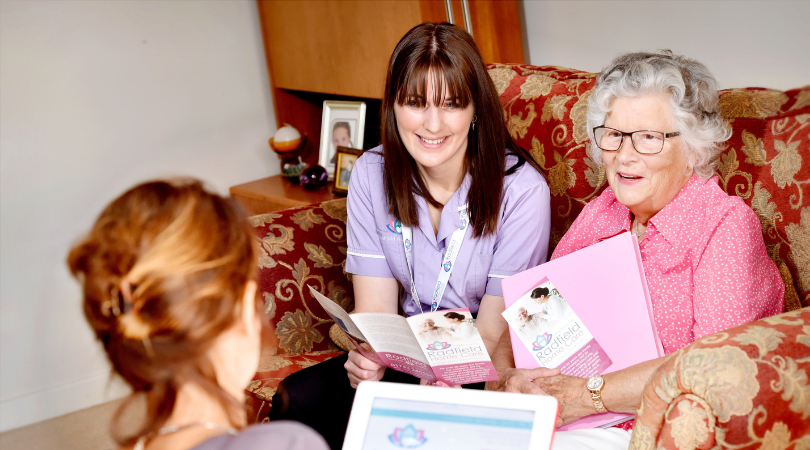
National Office
Please enter the office location/term above to receive results for your closest office as well as information matches
If you care for, or help an older relative or friend who is finding life at home more challenging, you may start to consider the options available with regards to care. In previous generations, a move into a care home was viewed as a natural progression for many people.
For some, there does realistically come a time when a move into a care home becomes appropriate.
However, now it is increasingly becoming the norm for people to want to stay in the comfort of their own home, for as long as possible.
This can lead to challenges for all involved; relatives, friends or neighbours becoming ‘primary carers’, whilst the individual’s quality of life may deteriorate as they struggle with their surroundings and meeting everyday needs.
Another option that can alleviate many of these problems is the provision of care in the home. By remaining in their own home, individuals maintain normality and have the comfort from living in familiar surroundings, with years of memories to relate to.
It retains a level of independence and people still feel they have control over their day to day lives, with a carer enabling their quality of life to be maintained.
Furthermore, the introduction of trusted carers can enhance the life of an older person. Very often, people build strong relationships with their carers, adding social value to their lives and additionally, the carer is likely to quickly identify any changes required in the individual’s care needs.
Carers can assist in many aspects of day-to-day life, whether that is help with personal and hygiene care, helping someone get around their own home and out on trips, making meals, carrying out domestic tasks, or just sitting down with a cup of tea, and having a chat.
Quite often the hardest step is to accept that help is needed and that can be true for both the individuals in need of care and the primary carers.
An individual may not wish to accept the need for help, and primary carers can feel guilty or duty bound to provide the care themselves. However, perpetuating an unmanageable situation in the end leads to too much stress for all involved and an inevitable breaking point. In fact, introducing care at an earlier stage before you have reached such a crisis point is likely to be a much easier process and lead to a long term positive outcome.
Once the decision has been made to accept help, the benefit of regular care in the home can transform peoples’ lives back to a much more manageable situation.
Matt and Lis Barnes, Directors of Radfield Home Care Wycombe, Beaconsfield & South Bucks, opened their local branch in order to help their local community with this important issue.
“Having had relatives in need of care, we have seen the hugely positive impact that care in the home can have for the elderly. Our ethos is to provide the quality of care for our clients that we would want for our own relatives and we recruit and train our team of carers on this basis.”
– Matt Barnes, Director of Radfield Home Care Wycombe, Beaconsfield & South Bucks.
Get in touch with your local Radfield Home Care office today and find out more about the support we offer and the difference we can make.